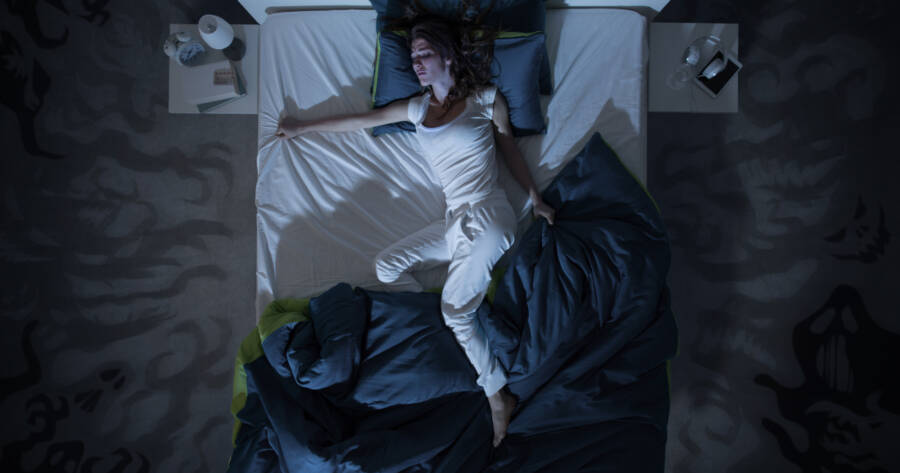While occasional night sweats can be attributed to a warm room or too many blankets, persistent occurrences might signal an underlying medical or psychological issue. Fortunately, if you start a search online, you can take control of night sweats.
Many of us have experienced waking up in the middle of the night drenched in sweat, throwing off the covers to cool down. However, it may not be an environmental issue. Read on to explore the causes, symptoms, and solutions around this condition.
What are Night Sweats?
Night sweats are episodes of excessive sweating that happen during sleep. Contrary to popular belief, they are not solely a result of a warm environment or heavy bedding.
They often interrupt sleep cycles, leading to a decrease in sleep quality. Night sweats can also vary in intensity, from mild perspiration to severe, clothes-drenching sweat.
Common Causes of Night Sweats
Various factors can contribute to night sweats, ranging from medical conditions to lifestyle choices. Hormonal imbalances, such as menopause or hyperthyroidism, are common culprits for this issue. 1
Infections like tuberculosis or certain types of cancers can also lead to night sweats. Stress and anxiety are psychological factors that may contribute as well. Additionally, medications like antidepressants or hormone replacement therapy can cause night sweats as a side effect.
How to Diagnose Night Sweats
Diagnosing the cause of night sweats often involves a multi-step process. Initially, a detailed medical history and physical examination are conducted. Blood tests may be required to rule out hormonal imbalances, infections, or other underlying conditions.
In some cases, imaging studies like X-rays or MRIs may be necessary. A sleep study may also be recommended to evaluate the impact on sleep quality.
Effective Treatment Options
Treating Underlying Medical Conditions
When night sweats result from medical conditions like infections, diabetes, or cancers, treating these primary issues often alleviates the symptoms. 2 For example, antibiotics can treat bacterial infections that may cause night sweats, and appropriate treatment for diabetes can bring hormonal levels back to normal.
Hormonal Therapies
For individuals dealing with hormonal imbalances such as menopause or hyperthyroidism, hormone replacement therapy (HRT) can be a viable option. These therapies aim to restore hormonal levels to their natural state, thereby alleviating symptoms like hot flashes and night sweats.
Cognitive Behavioral Therapy (CBT)
Cognitive Behavioral Therapy is a type of psychotherapy that teaches coping mechanisms for stress, thereby reducing its physiological effects, such as night sweats. Through CBT, individuals can learn to identify stress triggers and respond in healthier ways, which may alleviate symptoms.
Medication Adjustments
If your night sweats are a side effect of medications such as antidepressants or antipsychotic drugs, speak with your healthcare provider about alternative treatments. Adjusting the dosage or switching to a different medication can sometimes reduce or eliminate night sweats.
Lifestyle Changes
Making adjustments to your lifestyle can sometimes offer relief from night sweats. This can involve several strategies like reducing caffeine or alcohol intake, especially before bedtime, as these substances can interfere with temperature regulation. Creating a cooler sleep environment with fans or air conditioning can also help.
Each of these treatment options has its own set of considerations and should be discussed in detail with your healthcare provider for a personalized treatment plan. Whether it’s a medical treatment or a lifestyle adjustment, the goal is to alleviate the discomfort and disruption caused by night sweats.
Natural Remedies for Night Sweats
Natural remedies can offer a complementary approach to traditional medical treatments. Herbal teas like chamomile or valerian root can help in inducing a calming effect before bedtime. Some people find relief by using cooling pads or moisture-wicking bedding.
Dietary changes, such as avoiding spicy foods and caffeine close to bedtime, can make a difference too. However, it’s crucial to consult a healthcare provider before trying any natural remedies, especially if you are taking other medications or have an underlying medical condition.
When to Seek Professional Help
Occasional night sweats may not be a cause for alarm, but persistent episodes that interfere with your sleep and well-being should not be ignored.
If you notice other symptoms like unexplained weight loss, fever, or persistent fatigue alongside night sweats, consult a healthcare provider immediately. 3 Timely diagnosis and treatment can help manage the condition effectively and improve your quality of life.
Find Relief from Night Sweats
Night sweats can be a confusing and discomforting experience, but understanding their causes and treatments is the first step in managing this condition effectively. Medical diagnoses often provide the most accurate understanding of what’s going on, leading to targeted treatment plans.
By researching online, you can gain a better understanding of whether or not you should consult with a doctor about your night sweats. Regardless of the cause or severity, it’s good to know that there are various solutions, ranging from medications to lifestyle adjustments, that can provide relief.
